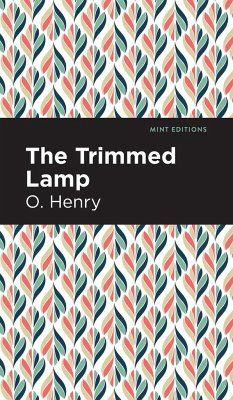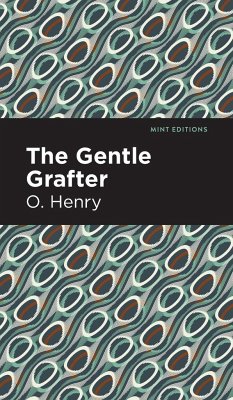
Waifs and Strays
Versandkostenfrei!
Versandfertig in 1-2 Wochen
7,99 €
inkl. MwSt.
Weitere Ausgaben:

PAYBACK Punkte
4 °P sammeln!
Originally published in 1917, Waifs and Strays is a premier selection of short stories released seven years after the author's untimely death at age 47. The book contains 12 memorable tales including "Confessions of a Humorist," "The Detective Detector," and "The Sparrows in Madison Square." In Waifs and Strays, O. Henry brings humor to unconventional stories with unforgettable characters. With "The Detective Detector" he spoof's the world's most famous consultant Sherlock Holmes, while "Hearts and Hands" centers the unusual dynamic between a convict, a marshal and a beautiful woman. There's a...
Originally published in 1917, Waifs and Strays is a premier selection of short stories released seven years after the author's untimely death at age 47. The book contains 12 memorable tales including "Confessions of a Humorist," "The Detective Detector," and "The Sparrows in Madison Square." In Waifs and Strays, O. Henry brings humor to unconventional stories with unforgettable characters. With "The Detective Detector" he spoof's the world's most famous consultant Sherlock Holmes, while "Hearts and Hands" centers the unusual dynamic between a convict, a marshal and a beautiful woman. There's also "The Cactus" in which a man recalls the errors of a past relationship and "A Little Talk About Mobs," where two men debate New York's gangster scene.Waifs and Strays is a compelling collection of stories that are humorous, thrilling and most importantly, entertaining. O. Henry creates diverse narratives that stir the imagination and keep readers guessing. Each tale is an attention-grabber full of memorable moments. With an eye-catching new cover, and professionally typeset manuscript, this edition of Waifs and Strays is both modern and readable. Since our inception in 2020, Mint Editions has kept sustainability and innovation at the forefront of our mission. Each and every Mint Edition title gets a fresh, professionally typeset manuscript and a dazzling new cover, all while maintaining the integrity of the original book. With thousands of titles in our collection, we aim to spotlight diverse public domain works to help them find modern audiences. Mint Editions celebrates a breadth of literary works, curated from both canonical and overlooked classics from writers around the globe.













